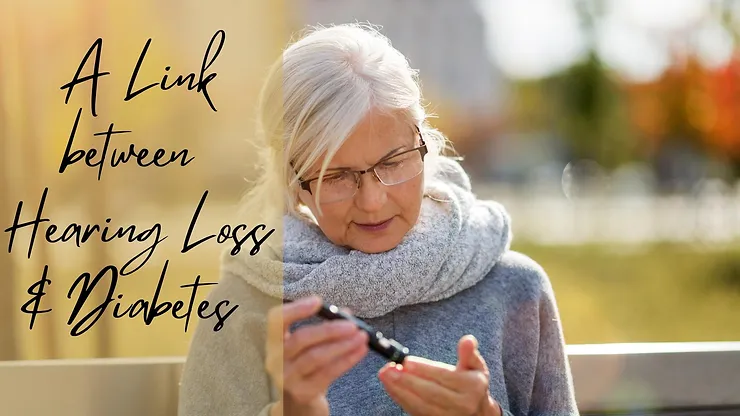
Hearing loss is a pervasive health issue that impacts over 40 million people in the U.S. The third most common chronic medical condition, hearing loss reduces a person’s ability to hear and process sound. This produces a range of symptoms that strain communication, disrupting daily life. There are a variety of factors that contribute to the development of hearing loss including existing medical conditions like diabetes. Studies have revealed that people with diabetes can be twice as likely to develop hearing loss compared to people without diabetes.
Research Linking Diabetes & Hearing Loss
Research has established a correlation between diabetes and hearing loss. Studies exploring the link between both conditions have shown that diabetes is a significant risk factor. A major study exploring this link was published in 2008 by researchers at the National Institutes of Health and included:
-
Study: researchers examined data that was collected for 5 years by the CDC. This data included results from hearing tests and responses from a questionnaire about diabetes for 11,405 participants between the ages of 20-69.
-
Findings: after analyzing the data, researchers found that participants with diabetes were more likely to have hearing loss. Mild and severe hearing loss was:
-
Low-Mid frequency sounds:
-
21% percent in adults with diabetes
-
9% in adults without diabetes
-
High frequency sounds:
-
54% percent in adults with diabetes
-
32% in adults without diabetes
These statistics show that compared to adults without diabetes, adults with diabetes were twice as likely to develop hearing loss, highlighting a significant correlation.
Understanding the Impact of Diabetes on Hearing Health
Diabetes impacts the body’s ability to make or use insulin effectively. Insulin is needed to help process glucose which comes from the food we consume. Diabetes prevents insulin from being produced (or optimally used) which allows glucose to remain in the bloodstream which can lead to major health issues including cardiovascular disease. Though more research is needed to identify how exactly excess glucose impacts hearing, researchers have provided insight.
The accumulation of glucose in the bloodstream can affect blood vessels and blood flow throughout the body. This suggests that the blood vessels in the inner ear can also be damaged. Crucial for the health and function of the auditory system, the inner ear is composed of the cochlea which is filled with fluid and thousands of hair cells. These hair cells help translate soundwaves into electrical signals that travel through auditory pathways to the brain where they are further processed and assigned meaning to; this is how we are able to understand what we hear. When blood vessels and circulation is damaged, it reduces the capacity for hair cells to perform their function. This then makes it more challenging for the brain to process incoming sound, leading to hearing loss which is a permanent condition.
Tips to Protect Your Hearing Health
If you have or are predisposed to diabetes, the first step (and a simple one!) you should take is scheduling an appointment for a hearing assessment. Hearing tests involve a noninvasive and relatively quick process that measures hearing ability in both ears. Conducted by a hearing healthcare specialist (likely an audiologist), hearing tests identify any impairment and the degree. Identifying your hearing capacity and needs is critical to addressing any concerns and ensuring that your hearing health is being addressed.
In addition to having your hearing examined, there are other useful ways you can reduce your risk of developing hearing loss and protecting your hearing health including the following:
-
Low Volume Settings: it is important to maintain low volume settings on electronic devices which is a useful way to reduce your exposure to loud noise
-
Listening Breaks: your ears and auditory system need time to rest and recover from constantly processing sound. Incorporate listening breaks during the day by turning off sources of sound so that your environment is quiet.
-
Protective Gear: wearing earplugs, headphones, ear muffs etc. when navigating loud environments is a great way to minimize the amount of sound you absorb and the impact of loud noise.
-
Exercise: increasing physical activity is great for healthy blood flow and energy. Exercise can contribute to reducing your risk of developing medical conditions.
If you are concerned about your hearing abilities, contact us today to schedule a hearing test!
